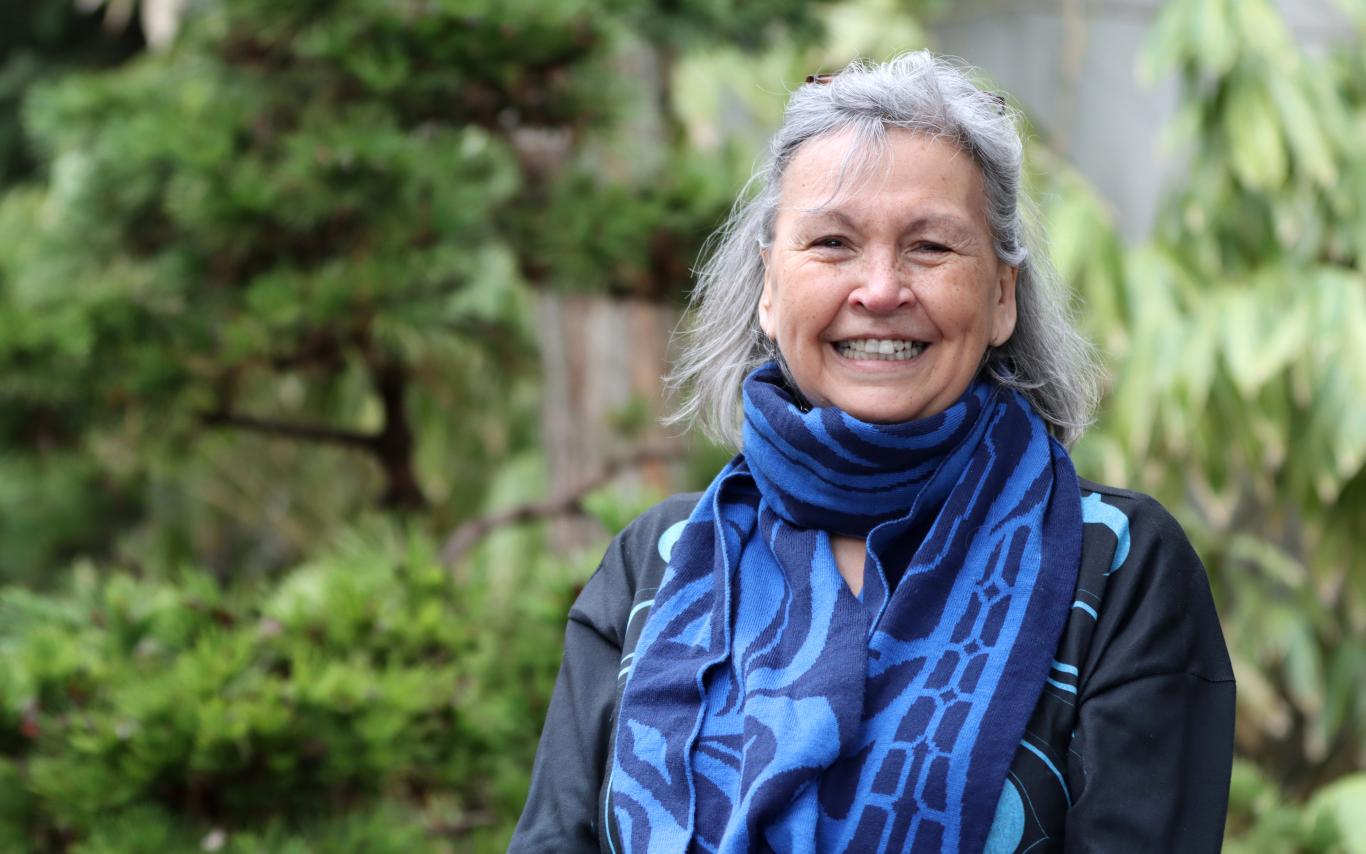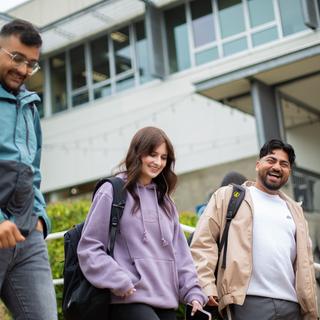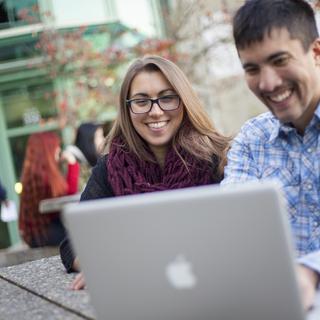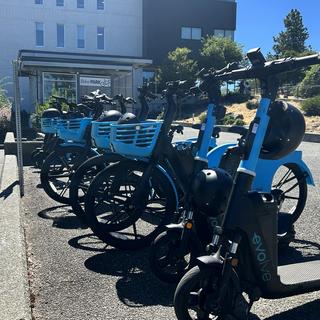Celebrating Indigenous mentorship at VIU
Vancouver Island University’s ‘su’luqw’a’ Community Cousins Aboriginal student mentorship program celebrated its 10th anniversary in September 2021. In honour of this important milestone, we are sharing stories of people closely connected with the program every month.
The ‘su’luqw’a’ Community Cousins program builds capacity for mentors to gain leadership and employability skills through outreach and mentoring activities. Students hone skills in self-awareness, communication, leadership, self-care and an exploration of personal values, with an emphasis on “telling one’s story” as a path to self-empowerment through outreach to others.
Sylvia Scow has watched more than a hundred students gain confidence and connect with their culture in a deeper way through the ‘su’luqw’a’ Community Cousins program.
“I’ve watched students who have gone from being hesitant about using their traditional language or doing their protocol when they are first starting out to being able to stand up in front of lots of people to tell their stories,” she says. “There are no words to describe what that moment is like. Watching them standing proud in their truth, hearing their voice and knowing they are valued; I don’t really have the words to describe it.”
Sylvia, from Liidlii Kue (Fort Simpson) in the Northwest Territories, is currently working as the Office of Indigenous Education and Engagement’s Interim Director. She founded the Community Cousins program in 2011 when the office received funding through the Counselling Foundation of Canada to start a mentorship program specifically for Indigenous students.
“When I think of my own journey, when we first started, I was intimidated because I had somebody else’s vision and I wasn’t sure how I was going to make it my own, I wasn’t sure how I was going to help provide that space for students to feel loved within the institution,” she remembers.
From the beginning, VIU Elder-in-Residence Gary Manson was involved. Because it was initially based on a training program intended for all students, not just Indigenous students, Sylvia and Gary began reviewing and shifting the programming over time so that it reflected an Indigenous lens on mentorship.
“We reviewed the training and cut out what we thought was not relevant, added more protocol and education on the importance of protocol, how and why we acknowledge territory, more land-based activities,” she remembers. “We asked the students who their Indigenous mentors were and why, encouraged students to take pride in telling the story of who they are and where they come from.”
An addition in recent years is holding regular thuy thuts, which translates to “fixing up” – an opportunity for students to check in with each other and share challenges and issues. It’s a chance to have honest conversations and practice gratitude.
“It gives them a connection to culture, the Elders, that Indigenous way of being versus the academic. We are here in the academic world, but all the things we bring as Indigenous people, we don’t leave that at home – it’s a way of balancing both,” explains Sylvia. “We want you to continue to embrace that piece of your identity and that there’s no expectation that you have to choose one or the other.”
The program started off with six mentors at first; at any one time, 35-40 students are involved in any given year, and Sylvia has watched more than 100 go through the program now. Many of them stay in touch and return for events.
“When the students are together, they’re part of a family,” says Sylvia. “After the training, we give them a hoodie and that hoodie is recognized throughout the campus and even in community. It’s a symbol of that connection, of being part of a bigger family.”
Each year, the Cousins participate in a fall giving back activity, such as handing out self-care packages to Elders or younger students. Then in the spring the group organizes the Celebration of Learning, where high school students are invited to come to campus to listen to the mentors’ stories about how accessing post-secondary education has changed their lives. In the summer, the Cousins organize Thuy’she’num Tu Smun’eem: Building a foundation for our Youth summer camps, which provide a first introduction to VIU programming to high school students as well as opportunities to participate in protocol and land-based learning.
These events get students from all levels of mentorship involved in activities that promote Indigenous leadership. The squle’eq’ are the younger brothers and sisters, who get introduced to the program through events like the summer camp and the Celebration of Learning. Some of these students go on to form their own mentorship programs, such as Jaime Coukell. The ‘su’luqw’a’ are current VIU students, and the shush u’yuth are “older brothers and sisters” – students who have graduated and moved into the workforce. Sylvia sees these students playing an important role in showing the squle’eq’ and ‘su’luqwa’a how their education can be used.
One of Sylvia’s favourite memories is when VIU formed a unique mentorship exchange program with Pitzer College in Claremont, California, funded by the 100,000 Strong in the Americas Initiative, an education project to increase the number of US students studying in the Western Hemisphere by 100,000, and the number of Western Hemisphere students studying in the US to 100,000 by 2020.
The partnership shared cultural knowledge and key educational initiatives – VIU incorporated elements of Pitzer’s Native Youth to College summer program for Indigenous high school students into the summer camps organized here, and Pitzer is using parts of VIU’s Indigenous Knowledge and Portfolio Dialogue Sessions in programming. VIU and Pitzer students travelled back and forth during the exchange.
“It was such a great opportunity for our students to not only step into leadership roles, but also broaden their experiences,” remembers Sylvia. “They had the chance to see a different way of doing things and experience the world beyond VIU.”
When Sylvia thinks about next steps for the program, she sees opportunities for growth, mentorship and leadership discussion.
“I envision a safe place for Indigenous student to belong and see themselves reflected in the post-secondary system. I see truth telling and an opportunity to have family that will support and encourage the journey.”




